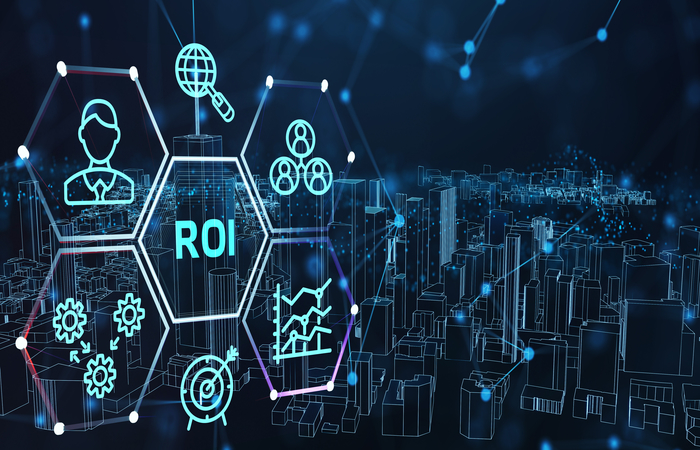
Navigating the Scale and Complexity of Themed Construction Projects
In the second installment of our series that explores nuances and opportunities inherent in the world of themed construction, we’ll examine how owners, developers, and decision-makers can best navigate the various factors that shape the scale and complexity of themed construction projects within an evolving AEC landscape.
Project teams need to consider the novel forces that can impact the progression of themed projects. These include technological advancements, urbanization, and shifting governmental or industrial policies — on top of recent difficulties in supply chain management and workforce shortage.
Additionally, for complex themed projects, Owners need to factor in the increased risk exposure arising from interdependencies with multidisciplinary parties, such as manufacturers and installers. With multiple collaborative dynamics involved, the construction industry continues to top the list for the largest and most complex insurance claims.
Identifying the Fundamental Challenges in Themed Projects
Most themed construction projects involve a large amount of complexity and scale from the groundwork. While these projects ultimately drive economic progress and social activity, they involve a long checklist of prerequisites that Owners need to consider right from the blue-sky phase.
Complex theme park construction, for example, often includes the simultaneous erection of multiple specialized structures, relying on interrelated supply chains and efficient logistics. In many cases, project teams face unexpected challenges and changes during construction, leading to overshot budgets and overrun schedules.
Taking a closer look at two noteworthy large-scale projects can offer clear insights into the magnitude and considerations for a themed project.
Paramount Theme Park in China
The project, worth around $8 billion, is set to be constructed in southwestern Yunnan province’s capital city Kunming. Paramount Theme Park will cover over 643 acres of land, and project managers expect the construction to take 42 months, scheduled for completion in June 2024.
Paramount’s complex project might face possible delays and budget adjustments, considering that the current plan is more than five times larger and ten times more expensive than an initial vision of the park in an official environmental assessment report.
Lost Island Theme Park in Iowa
The Lost Island Theme Park in Waterloo, IA, will cover over 90+ acres of land, including the 30-acre lake and five different ‘lands”. Set to open in 2022, this estimated $100+ million project is scheduled to include amusement park rides and play areas scattered among a volcano, temple ruins, statues, and huts to inject an estimated $32 million per year once the park is open.
The family-owned business is facing new challenges and considerations while developing a theme park versus a water park. Theme parks have more stringent safety requirements and the park itself needs to be laid out in a way that will keep guests engaged as they move to the different “lands” or wait in line.
Strategies for Navigating Complex Projects
While the examples above focus on theme park builds, themed construction projects run the gamut from restaurants and sports arenas to entertainment complexes and even educational facilities. Regardless of the type of project, however, project teams need to ensure adequate planning across multiple stages for the highest success rates. These include contract drafting, cost estimates, budget setting, reviewing the construction plans, and communications. Accounting for these factors will reduce the risks of project delays and disruptions.
Additionally, construction companies handling complex themed projects need to increase their efforts across every planning stage. According to McKinsey & Company, large projects across asset classes take 20 percent longer to finish than scheduled and exceed budgets by up to 80 percent.
Complex Multinational Supply Chains and Logistics
While the post-COVID world has pushed globalization to minimize supply chain timelines, this comes with political considerations. For example, rising tariff duties between America and Canada have resulted in price swings for the lumber market. Similarly, the U.S. retains prohibitive tariffs with China, which increases the cost of supplies.
A complex construction project often requires diverse resources, and owners must ensure that these resources remain both within budget and accessible in the post-pandemic landscape. Possible short-term solutions include seeking domestic supply for essential building materials and considering available alternatives such as aerated concrete blocks and engineered wood.
Communication Among Parties
Owners need to adhere to a firm budget from the beginning of a themed project, outlining the costs involved for every item and process.
While unforeseen circumstances such as the COVID-19 pandemic may result in surcharges across some categories (for example, due to labor shortages and supply chain strains), it is essential for decision-makers to set a buffer for spillovers and to communicate these potential costs clearly across all parties.
Owners should include “add/delete” design alternatives in design concepts, which drive project feasibility for accurate estimates, schedules, and budgets. These measures will help prevent extra expenses from redesigns after the bidding phase.
Stakeholder Buy-in
Decision-makers need to understand stakeholders’ general interests and concerns in the post-pandemic climate. The integral measure ensures that projects stay within a specific timeline, even during unexpected events.
Keeping stakeholders motivated in a project helps shape a positive outcome, reducing the risks of miscommunication while reaffirming construction goals — and maximizing buy-in — despite volatile market conditions.
Additionally, owners should consider a multidisciplinary team, accounting for individuals with specific expertise, and prioritizing training and certifications for laborers to cope with the demands of a complex construction site. An all-rounded team enables the availability and quick deployment of technical specialists required for complex projects.
WCCI – Leading Construction Solutions Provider for Complex Projects
While building construction software can provide owners with an estimate of material costs and structural dimensions, it fails to account for other integral factors involved in complex themed projects. For a complete view of the picture, decision-makers need access to on-the-ground expertise coupled with market research.
At WCCI, our experienced construction consulting experts will guide decision-makers through the interrelated and often overlooked conditions that affect project progression.
Our diversified portfolio includes over 4,000 unique projects worldwide. We specialize in providing the most detailed budget breakdowns and considerations for large-scale projects that include stadiums, public buildings, and theme park constructions.
Through accurate and comprehensive construction solutions, companies can reduce the risks of going over budget and schedule, secure clients’ trust, and establish a leading reputation in the construction industry.
Our next installment in the series will shine a light on the innovative approach behind successful themed projects and how owners can optimize the process.
Reach out to an expert from the WCCI team to discover how we can help you improve your construction ROI and advance themed projects according to plan.



